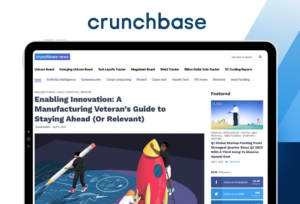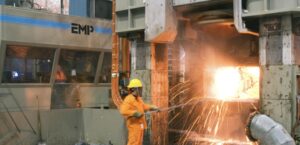How ERP Can Be Used to Improve Company Performance

No matter the size, every organization consists of departments. Each is based on the functions they serve to the business as a whole. In a typical process manufacturing company, those departments would include accounting, sales, purchasing, inventory, production, and human resources, and more.
In many organizations, each department is a separate entity with limited real-time communication or collaboration with other departments. Information and data are shared between them via emails, phone calls, or messaging, which, of course, are methods that can be time-consuming, and it is uncertain whether shared data or information is up-to-date.
Companies that use these inefficient approaches are at risk of losing any competitive advantages they had in the past. Why? Because many of their competitors have left their antiquated ways behind and have introduced enterprise resource planning (ERP) to their business processes. By doing so, they have set in motion the integration of their assorted departments within the organization. With this move, they have enhanced the availability of data in real-time, allowing them to make quick decisions and stay ahead of their competitors.
Here are a few ways ERP can help any business improve its performance.
ERP creates centralized systems.
Businesses need information flow to be centralized so that the decision-makers can see the entire picture anytime and in real-time. There should be no delays created by slow-moving communications such as emails, letters, or phone messages. Organizations that can’t react quickly to shifting market conditions or customer demands could lose business and be outshined by the competition.
Everyone within an organization shares the same central database.
There are all forms of data within an organization: employee data, inventory data, production data, financial data, to name a few. Companies use databases to create, store, and manage all of this information. Quality ERP systems can work with any database, platform, and operating system.
With an ERP solution, individual departments do not maintain their own databases. If the production department needs a list of employees, it imports the file from HR. With this type of centralization, there is no duplication of data, and every department shares the same information, courtesy of a central server, or database.
Anyone in the organization can learn and use ERP.
Enterprise Resource Planning is user-friendly. It is not a complex system that is only accessible by the IT people or upper management. The system is designed so that every employee can play a role as an end-user.
For example, an entry-level machine operator can input data for a job on which they worked, including materials used, the time that it took, and any quality issues encountered. All information is then recorded in the central database and is immediately available for a manager to see.
ERP adapts to your business, not the other way around.
ERP does not require companies to adapt their business processes to conform to its system. Instead, it is a flexible solution that is customizable to the needs of the organization. And it integrates with the company’s existing operating and database systems.
ERP is an effective system that works well with any sized business. So, smaller companies on a limited budget can implement a modular ERP solution, saving substantial upfront costs.
ERP is cloud-based and mobile.
Many businesses have discovered that implementing on-premise ERP systems can be expensive. That’s why cloud-based systems are gaining popularity. Not only do these systems reduce implementation costs substantially, but they are also mobile. This feature allows salespeople to access real-time information and make critical decisions while at a customer’s location. Similarly, marketing people can update information in real-time, which permits executives at corporate headquarters to make decisions and respond quickly.
Everyone connected to the company feels the positive effects of ERP.
ERP systems benefit everyone within the organization, but it doesn’t stop there. Customers will also experience the advantages of timely price quotes, up-to-date inventory data, better and more personal communication, and on-time deliveries that result from accurate information along the supply chain and shop floor data–preventing production bottlenecks.
When customers call in to ask about inventory, shipping details, or projected delivery dates, they get real-time answers—and every client appreciates that!
ERP boosts efficiency across all departments.
Since ERP incorporates each department into a central database, they all show improvements across the area of efficiency. Whether in sales, finance, marketing, manufacturing, or inventory control, the data available from each allows them to collaborate and communicate effectively.
Manufacturing processes are streamlined through the automation features of ERP. Inventory control improves because of the centralized system, and the customer is served during the full life cycle of the product.
ERP could provide a significant ROI within a year.
In the past, it could take up to three years to implement the traditional on-site ERP. Today, however, cloud-based solutions have reduced that time to the point where companies are seeing a return on their investment within one year. The ROI could be from improvements in quality, decreased labor costs, satisfied customers, and other cost reductions—all the result of implementing a quality ERP solution!
The ERP experts at Decision Resources are ready to provide the partnership your manufacturing enterprise needs to streamline functions, improve productivity, and introduce and maintain an integrated and more efficient way of doing business. If you’re ready for a partner to help you to take a step toward transforming your business with an ERP, please get in touch through our online contact form, call 412-562-9660, or email us at info@decision.com.
Similar Blogs

Decision Resources Featured on Crunchbase

Chips, drugs, and steel — how to prepare for Trump tariffs





